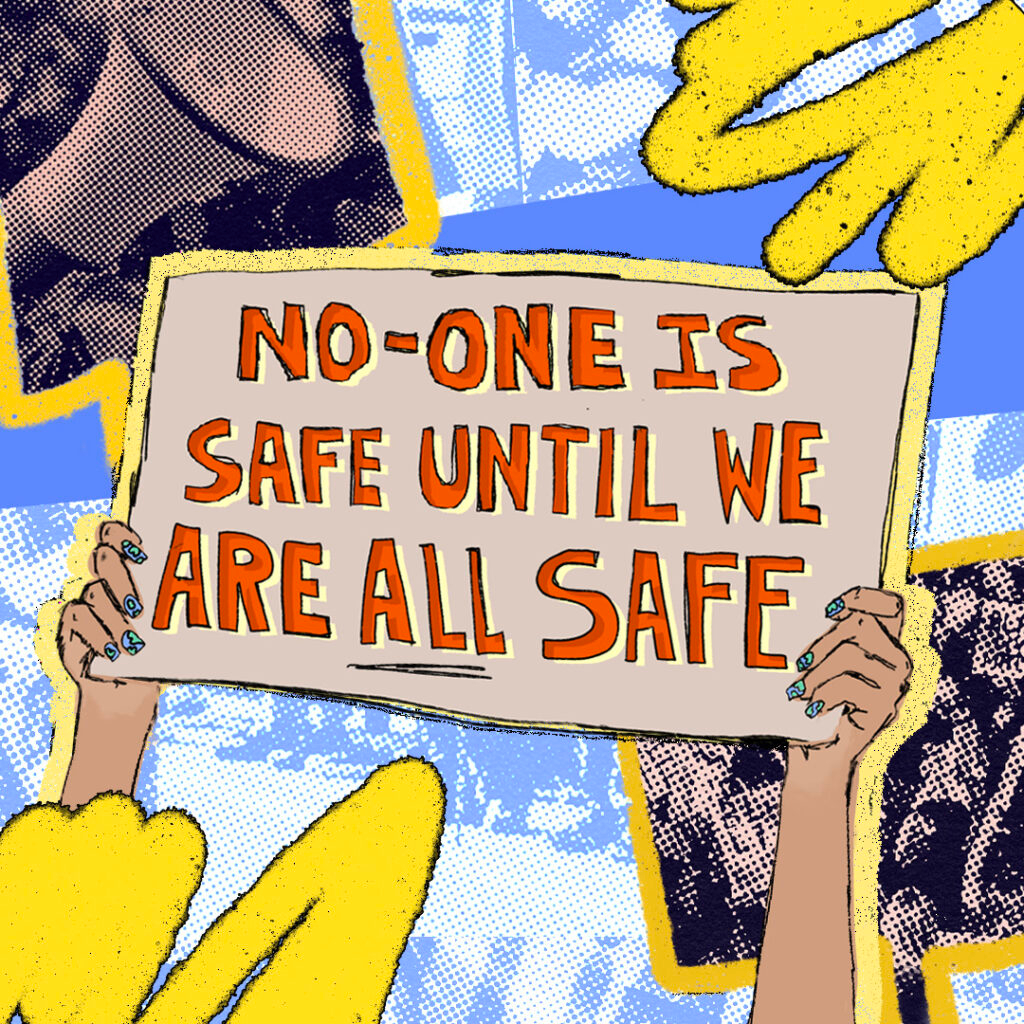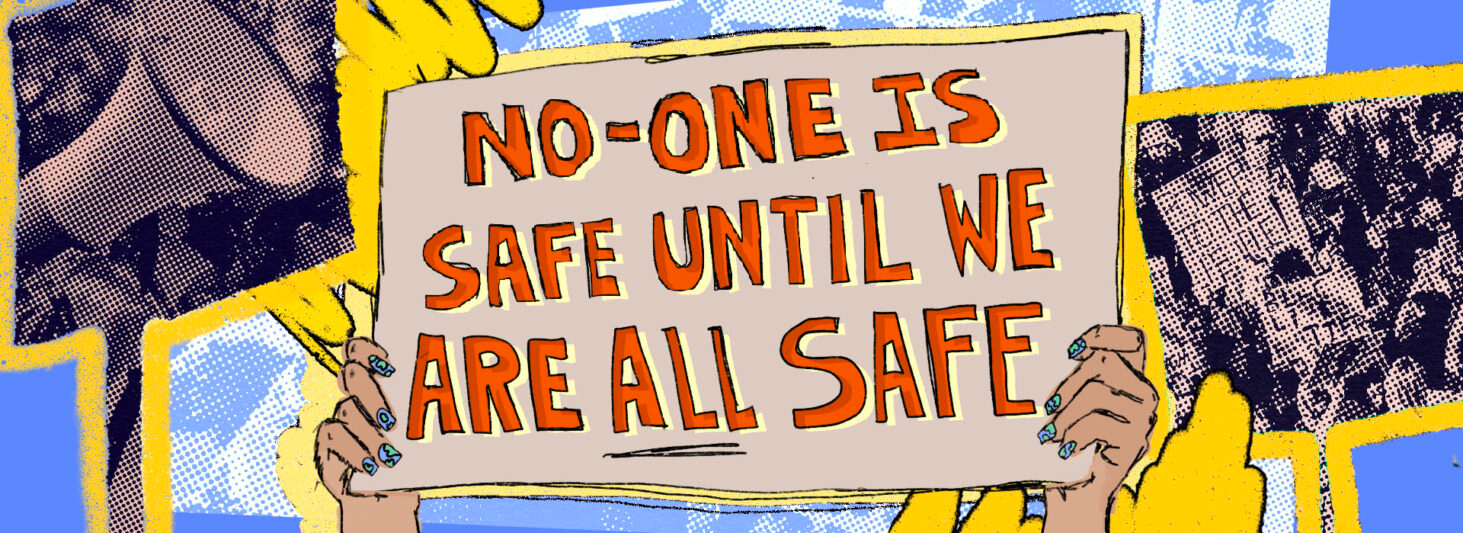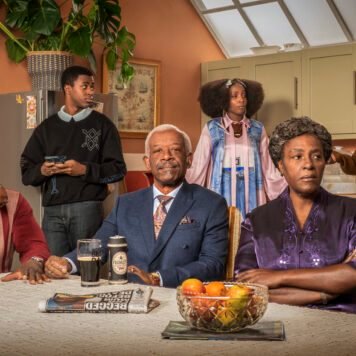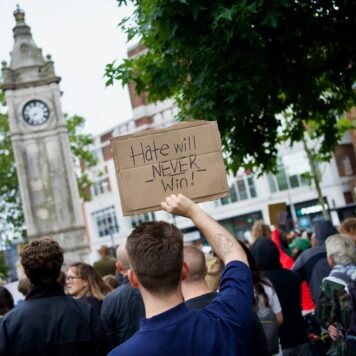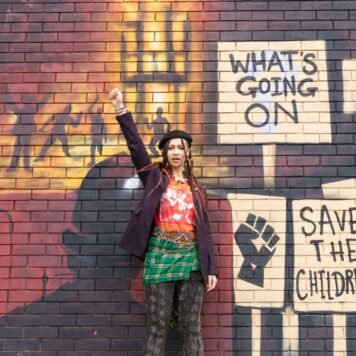No one is safe until we are all safe. This was a phrase casually thrown around during the Covid era, in a nod to the idea of global solidarity facing a common enemy. Of course, this so-called solidarity was one riddled with inequality, and we have already slipped back into our old ways – every person for themselves.
This has been the persistent rhetoric of the Tory government regarding migrants and people seeking asylum. They never say that people want to come to this country, be included in society, contribute to said society, and find safety alongside British citizens. Instead, British citizens are pitted against people seeking asylum, resulting in a pervasive zero-sum game mindset:
We don’t have enough, so why should we help them?
Some British people are homeless, there’s no space for refugees.
We should help veterans who fought for this country, not people who are coming here to steal our jobs.
In a particularly vile episode recently, Daily Mail columnist Amanda Platell tweeted: One in ten British children don’t even have breakfast while illegal migrants fill their bellies like a Cruise holiday buffet.
Not only is it shameful to suggest that people seeking asylum don’t deserve breakfast – when they’re already stuck onboard a bacteria-riddled prison barge – but this tweet is also factually incorrect.
Most of the people who were briefly moved onto the Bibby Stockholm are already most of the way through their asylum process, so are not even classed ‘illegal’ under the government’s new anti-refugee Illegal Migration Act.
This kind of rhetoric is being deployed by both the government and right-wing media to hide the reality that the Conservatives have let down both British citizens as well as refugees and migrants during their long stint in government.
Cost of living has gone up while refugee support goes down; house prices rise as protection rights fall. The government’s attempt to blame people seeking asylum for every problem in the country is wearing thin, and it’s important that we keep returning to the phrase: no one is safe, until we are all safe.
This concept of solidarity is particularly relevant in light of recent reports that the government would consider withdrawing from the European Convention of Human Rights (ECHR) in order to force through their despicable Rwanda policy. This policy, part of their ‘Stop the Boats’ campaign, sought to send people seeking asylum in the UK to Rwanda for the asylum process – despite judges, campaigners and people on the move themselves warning of the risk to asylum seekers’ safety and wellbeing.
Such a blatant attack on the right to seek asylum should be enough of a reason for British citizens to contest this indefensible move. Yet it is not only people seeking asylum whose rights are being eroded. By leaving the ECHR, purportedly to ‘stop the boats’ and fly vulnerable people to Rwanda, the government paves the way for a whole host of attacks on rights across the board.
Take, for example, the right to protest in the UK. The principle legal frameworks that defence lawyers use in protest cases come from the ECHR. Article 10, freedom of expression, and Article 11, freedom of peaceful assembly, offer protection to people protesting a variety of issues across the political spectrum, from climate activists to anti-vaxxers. Whether or not we all agree with every protest is beside the point: everyone living in countries which are members of the ECHR has the right to gather, peacefully and publically, in protest.
Protesting is one of the only avenues we have to express ourselves in the political sphere outside of elections. Under the Conservatives, protest rights have already been heavily eroded in the UK, with the recently passed Police, Crime, Sentencing and Courts Act extending the police’s rights to impose conditions on gatherings (or even individuals) that limit the freedom to protest. The threshold for such conditions to be put in place has significantly lowered, with the new wording in the Act granting the police worryingly broad powers to decide what amounts to “serious disruption.”
Now, even a single-person protest against, say, fox-hunting, could theoretically have conditions imposed on it if the police considers the protest might ‘prevent, or hinder in a way that is more than minor, day-to-day activities (including journeys)’. This means the protestor is liable for arrest if they continue to protest after being informed that said condition is imposed – which represents a severe limitation on ability to protest in the UK.
However, if the UK leaves the ECHR, the entire principle of the right to protest is on the line. There are no provisions in place to replace the ECHR; the UK ratified the Convention in 1951, and thus has long relied on this treaty for its approach to a broad range of human rights – primarily those of British citizens. Most of the cases brought to the European Court of Human Rights in Strasbourg relate to human rights violations committed by states against their own citizens – not people seeking asylum and migrants.
As University of Manchester professor Miriam Ronzoni summarises: “It is also, or perhaps mainly, UK citizens who stand to lose a lot in terms of human rights protections.”
It would be easy, in this climate full of hatred and suspicion of migrants, refugees and people seeking asylum, for the government to claim they are leaving the ECHR in order to ‘stop the boats’ and ‘uphold the will of the British people’. However, it is the rights of the British people that would then be under attack too – and thus we see that no one is safe, until we all are.
– – –
I was arrested in July for protesting against the recently passed Illegal Migration Act, and the floating prison barge Bibby Stockholm. To me, it could not have been a starker indication that both the right to asylum and the right to protest are under attack in this country.
Subscribe to shado's weekly newsletter
Exclusive event news, job and creative opportunities, first access to tickets and – just in case you missed them – our picks of the week, from inside shado and out.

While I was in custody, I was saddened by the thought that even though I was being held on suspicion of breaking the law, I was likely being treated better than most people seeking asylum are treated by authorities when they are first processed in the UK. The act of seeking asylum is being treated as criminal behaviour – despite it being an internationally protected right.
No human being is illegal. Now more than ever, we need to keep protesting against the attacks on the right to asylum, and in doing so, protect our own rights and the rights of others in the future.
No one is safe, until we are all safe.
What can you do?
- Join the #NotInMyName online protest – standing against the Migration Act
- Follow Reclaim The Sea on Twitter, Instagram and Facebook – updates on the Bibby and other recently revealed news.
- Read this resource: What is the Hostile Environment?
- Books:
